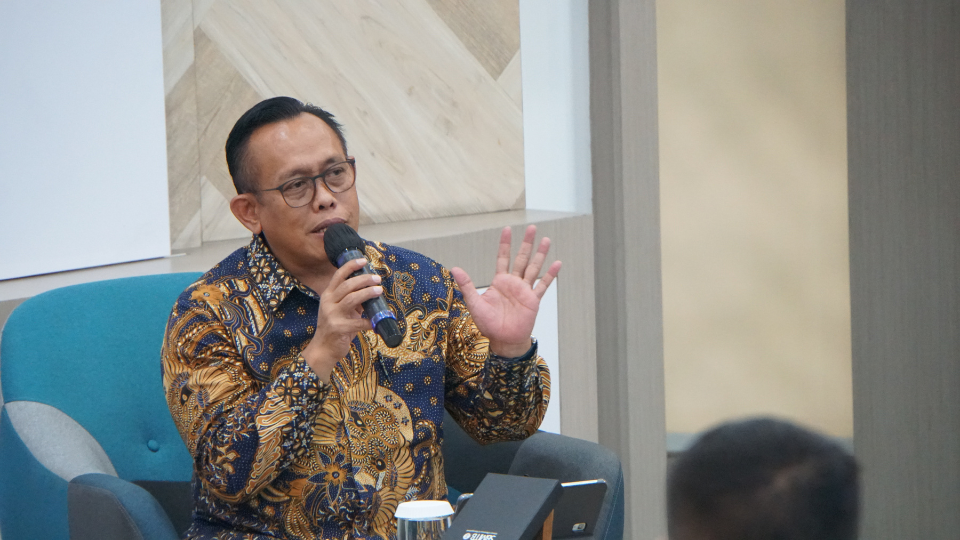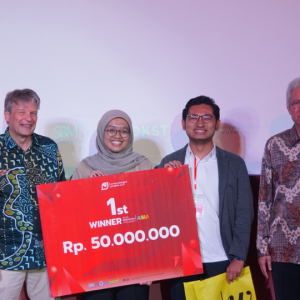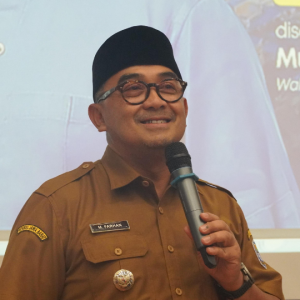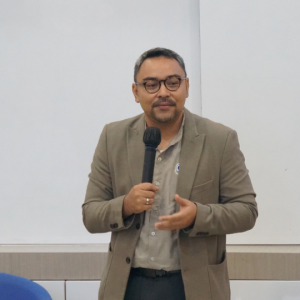The Entrepreneurship Student Association (IMK) of the SBM ITB hosted a Fridaypreneurship event themed “People-Based Economic Development” in Bandung (25/4). The event featured Sri Surgi Atmanto, Director of Trade Facilities and Logistics at the Ministry of Trade, who discussed government policies regarding developing and revitalizing traditional markets.
In his opening remarks, SBM ITB Vice Dean for Academic Affairs Dr. Ir. Subiakto, M.B.A., RFA, QWP, CFP, emphasized the school’s tangible contributions to market development, highlighting ongoing initiatives in Pasar Atas and Cimindi, Cimahi.
“SBM ITB is committed to continuing its support for advancing Indonesia’s traditional trade sector,” Subiakto stated.
Sri Surgi outlined the government’s current focus on developing logistics and market-based trade infrastructure to stabilize prices and ensure the equitable distribution of basic goods across the country. This initiative aims to reduce regional price disparities and strengthen the resilience of the people’s economy. However, he also pointed out that many market development projects fail due to a lack of community-centered feasibility studies.
“Many markets end up abandoned because they were built without a thorough feasibility study,” he noted.
The government is promoting a market revitalization program through physical and non-physical approaches to address this issue. Alongside infrastructure upgrades, revitalization efforts include training in management, marketing, and enhancing the competitiveness of local traders. These initiatives align with Presidential Instruction (Inpres) No. 8 of 2025, which calls for accelerated efforts to eliminate extreme poverty.
“Revitalizing traditional markets is expected to increase household income, reduce living expenses, and decrease poverty pockets,” Sri Surgi added.
He also raised concerns about the rising trend of consumerism in Indonesia, particularly in the textile industry, where raw materials are often imported in large quantities for resale rather than domestic production.
Furthermore, he highlighted the ongoing challenge of sustaining exports for market-based traders.
“Sustainability of raw materials is essential to penetrate the export market. Without it, Indonesia’s top products struggle to maintain their presence globally,” he explained.
The Ministry of Trade supports market revitalization through physical funding mechanisms such as the Special Allocation Fund (DAK) and collaboration with the Ministry of Public Works and Public Housing (PUPR). Non-physical support includes initiatives like the National Movement to Clean Up the Archipelago Market (Gernas Mapan), Real Work Lectures for Young Market Activists, market digitalization programs, and efforts to empower regional markets to become more self-sufficient and competitive.





